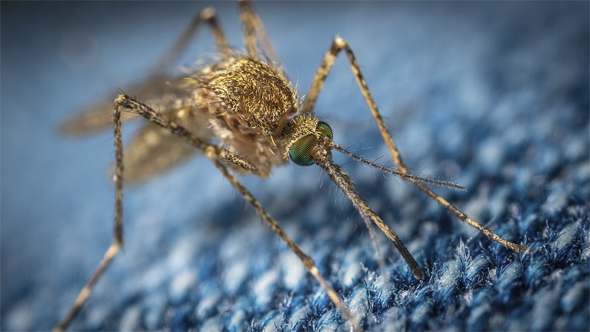
From Aug. 1 to 5, Greene County Public Health trapped mosquitos in the Bellbrook area; the Health District was notified on Tuesday, Aug. 17, that the mosquitos tested positive for West Nile Virus. (Image via Pixabay)
West Nile Virus detected in Bellbrook mosquitoes
- Published: September 3, 2021
Greene County Public Health received notice from the Ohio Department of Health, or ODH, that West Nile Virus was detected in a mosquito sample sent to ODH.
From Aug. 1 to 5, Greene County Public Health trapped mosquitoes in the Bellbrook area, and the Health District was notified on Tuesday, Aug. 17, that these mosquitoes were positive for West Nile Virus. The area with the positive mosquitoes is south of State Route 725, east of Wilmington-Dayton Road, north of the Sugarcreek Metropark and west of Lakeman Drive.
Greene County Public Health will continue to monitor adult mosquitoes in the surrounding communities. Areas have been treated with larvicide to reduce the adult mosquito population. Staff have been trapping mosquitoes since June 2021 and will continue to do so until October, concentrating on human population centers.
West Nile Virus is most commonly spread by infected mosquitoes and can lead to severe fever, encephalitis (inflammation of the brain) or meningitis (inflammation of the lining of the brain and spinal cord). The primary carrier in Ohio is the northern house mosquito, Culex pipiens.
Mosquitoes become infected when they feed on infected birds. Infected mosquitoes can then spread the virus to humans and other animals when they bite.
Mosquitoes have been collected using gravid mosquito traps, and then sent to ODH for identification and testing. Information on the total number, the type, and the sex of mosquitoes — only females spread the virus — have been collected.
Greene County Public Health Commissioner Melissa Howell reminds everyone to be aware of their exposure to mosquitoes and to protect themselves by:
• Eliminating standing pools of water, such as birdbaths, gutters, old tires, unused pools, boats and buckets, particularly after rain events.
• Avoid shaded areas where mosquitoes may be resting.
• Limit outdoor activity during evening hours.
• Wear protective clothing such as light-colored, long-sleeved shirts and pants.
• Use insect repellents (those containing DEET can be very effective; follow manufacturers’ usage recommendations).
Public health officials will continue to monitor for mosquitoes by checking for standing water, applying larvicide, trapping and testing mosquitoes and applying adulticide if indicated.
For more information about mosquito control or to contact Environmental Health Services, call 937-374-5607.
The Yellow Springs News encourages respectful discussion of this article.
You must login to post a comment.
Don't have a login? Register for a free YSNews.com account.














No comments yet for this article.